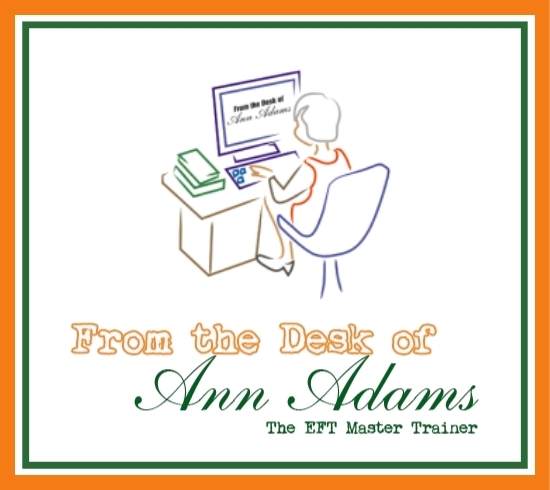Roshane lost trust in his practitioner and stopped sessions. He indicated that the practitioner may have attempted to do “too much too fast” or “was pushing own agenda” when he wanted more time to process and was uncomfortable with the way the practitioner “pushed” him for finding a specific event.
There are always two sides to every story.
- Perhaps the practitioner did attempt to clarify what Roshane wanted and/or expected from the EFT session.
- Perhaps Roshane’s belief was that if someone really cared about him he or she would just “know” what he needed/wanted.
- Perhaps the practitioner was the one who believed he, the practitioner, should just “know” and acted on his assumption about what Roshane needed to the detriment of the client and himself.
- Perhaps Roshane took an immediate dislike to the practitioner, for who knows what reason, and nothing the practitioner did would have been “right.”
- Perhaps the practitioner was inexperienced and felt he had to start tapping right away and find a specific event and really didn’t get sufficient background information.
- Perhaps Roshane is a very angry person who is only able to feel good about himself if he criticizes someone else and that practitioner was in the wrong place at the wrong time.
- Perhaps a lot of things.
But, whatever happened, Roshane’s expectations for the session were not met. He was not “ready” to move so quickly. He was not “willing” to go at a fast pace. He was not “able” to process his feeling, at least not at the pace he assumed the practitioner wanted. With a new client it is useful to address the “pace” question both at the beginning of working together and at points along the way. Just ask, “EFT often works very quickly, some people need more time to process what happened. Would you like to stop here and talk about what’s going on?”
Whatever really happened, the practitioner misread Roshane’s “ready, willing and able” signs for what he addressed, how it was addressed and the timing used for addressing it. The truth is we cannot be all things to all people at all times. No matter how hard we try we sometimes may not be able to clarify the client’s expectations and/or meet them. And since most of us get into this field because we want to help others, this can be a painful event.
Everyone has their own path, their own timing and their own journey. – an Annism
We can only hope to be the right person, with the right tool, at the right time, in the right place. We are responsible “to” the client for having done our own work to be fully present and for being very good at using our tools with the clients we choose to serve. We are not responsible “for” our client.
There are many, many different questions we could ask to begin gaining sufficient information to gently discover how “ready, willing and able” (RWA) they are to work on their issues, at this point in time. Some questions I use to assess their RWA are below.
Practitioners often ask directly in the intake and along the way but the answers are often not a true reflection. I prefer a more indirect approach:
READY – Direct: “How ready are you to resolve this issue?” They honestly may not know themselves. They may say they are ready, but have no idea of the unconscious resistance or “part” that is nowhere near ready. In my background I’ve heard therapists talk about “resistant” clients as if it was a rare phenomenon. I believe we are all resistant. We all have some level of conflict about changing and often our external community may significantly impact the person’s actual ability to change.
Better Question: “What do you think might get in the way of your resolving this issue?” may be more useful for assessing readiness and ability.
WILLING – Direct: “What changes are you willing to make in your life now?” I think that’s a useful question only as to how it brings up the resistance, especially early in working on an issue. A better question to allow you to address challenges to change would be,
Better Question: “As you think about making changes around this issue what comes up for you?”
ABLE – Direct: “How comfortable are you right now in talking about the trauma?” The client may present with sufficient ego strength and ability to “self-regulate” i.e. their ability to calm and control their emotions) or at least the emotions they present at the time. Watch for their level of body awareness. Watch for how they respond to you and how they describe responding to others and the world. Often my first tapping with a new client is to use the constricted breathing exercise. Simply tapping for the % of a full breath will show you a good bit about how able the client is to respond to EFT and address his or her issues.
Better Question: “How do you calm yourself when you get upset?”
Checking in frequently with the client with genuine curiosity with,
“What comes up for you now?” is a useful way to assess what is going on. In most instances, it’s useful to mirror back any discomfort you are seeing that he or she is not sharing,
“I notice you did … when we…, can you share what happened then?
Or, “I’m beginning to feel … here, are you noticing that as well?”
Or, “I could be wrong here, but when I did/said … I noticed you … and was wondering what that meant.”
Our job is to be present so we can be aware of subtle changes in the client, in yourself and in the room between you – and act on them in some way.



